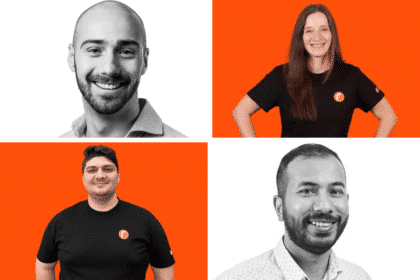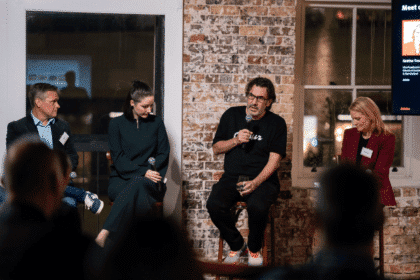NSW Premier Chris Minns and South Australian Premier Peter Malinauskas have delivered impassioned addresses at the Social Media Summit in Sydney on October 10, 2024, highlighting the devastating impact of social media on the mental health of young people.
Opening the summit, Malinauskas shared shattering quotes from Australian families whose children had taken their own lives due to the pressures exacerbated by social media. “Each story is more than the loss of a loved and valued young person. It’s also the loss of a future and everything that person could do, of everything that person can be. And each story tells us the same thing; we simply must act,” he explained.
“In the past, it was easier to pretend that access to smartphones and 24/7 social media wasn’t a seismic shift in a way that our children moved through the world. We could tell ourselves that social media is a superficial sign of the generational divide, the contemporary equivalent of an out-of-touch dad complaining about how much he can’t stand his young child’s music,” Malinauskas explained. “But this isn’t an option anymore. The results are in. The science is settled. We know for a fact that social media has changed childhood, and it is doing our children harm”.
The summit, co-hosted by the NSW and South Australian governments, aims to spark solutions to the growing mental health crisis linked to online platforms. Digging into the broader societal impacts of social media and proposing actionable solutions, the summit is a joint effort between the NSW and South Australian governments that aims to address the prevailing and pressing issues facing youth in Australia as we become more and more aware of the impacts that social media can have on mental health, particularly among children and teenagers.
Have Your Say Research Reveals 87 Per Cent Of Respondents Support Age Limit Increases On Social Media
Key insights from the NSW Governments Have Your Say research, which ran from August 11 to September 15, 2024, reinforced the urgency of the discussion and shaped the conversations of the summit. Over 21,000 participants contributed to the consultation, with 87 per cent of respondents supporting the introduction of an age limit for social media use—the most common suggestion being 16 years. The data reflected a broad consensus across different demographics that age restrictions are crucial, with parents and females being the most supportive.
Parental concerns were particularly pronounced. The findings revealed that 76 per cent of parents of 5-17-year-olds reported their child’s daily social media usage, averaging 2 hours and 19 minutes—a figure that rose to 3 hours and 18 minutes for older teens. Many parents expressed fears about exposure to inappropriate content and the dangers posed by online predators. Notably, households in regional areas, single-parent families, and Aboriginal and Torres Strait Islander communities reported the highest levels of screen time among children.
While parents voiced significant concerns about the negative impacts of social media on their children—32 per cent reported it had a negative effect—teenagers appeared more optimistic. 26 per cent of 16-17-year-olds claimed social media had a positive impact on their lives, with only 8 per cent citing negative consequences. This disconnect between parents and teens highlighted the complex nature of the issue and the need for more comprehensive education on the potential harms of social media.
In addition to privacy and safety concerns, cybersecurity threats such as scam attempts and data privacy risks ranked high among the broader community’s worries, particularly among marginalised groups like the LGBTQIA+ community, individuals with disabilities, and those from non-English-speaking backgrounds. 33 per cent of respondents aged 16 and over reported feeling threatened or intimidated by content or comments on social media.
Taking Back Control
Minns used his address to call for action and regulation, emphasising the right we have to control the way we consume and utilise technology. “We do have some control over the incursion of technology in our lives. It is not a one-way street of more technology forever with no restrictions or regulations,” he said. “As individuals, there’s only so much we can do. But as a community, we can confront these challenges together. We are not just consumers of technology—we are citizens in a democracy”.
Both Minns and Malinauskas stressed the need for educational initiatives to equip young people and parents with the tools to navigate the online world safely. According to the Have Your Say data, 91 per cent of parents believe more should be done to educate families about the risks of social media, a call echoed by both leaders during the summit.
“It’s up to us to decide the kind of country that we want to live in and the lives we want for our children, the next generation, and that’s what this summit is about. It’s a huge responsibility, but we firmly believe, both Peter and myself, that if we assemble the best information, if we can formulate and articulate the right policies, then we can set a new course, take back some control, and, most importantly, give our kids the best chance for a full and happy life,” Minns explained.
Both premiers agree that social media has brought about profound changes—not all of them positive. While it has revolutionisd communication, it has also contributed to a decline in mental health and has disrupted traditional learning environments. “This summit is not about turning back the clock,” Minns explained. “It’s about ensuring we have the tools to create a healthier, happier society where young people can harness the good of social media while disposing of the bad.”
“We owe it to our children to ensure their futures aren’t compromised by the platforms we allow them to engage with today,” Malinauskas said.
The Results Are In: Phone Bans Work
An OECD study cited by Minns found that phone use in classrooms negatively affected students’ learning, with students scoring lower in standardized tests due to digital distractions.
Malinauskas noted that South Australia was the first state to institute a mobile phone ban in schools and commission a legal review into social media access for children. He emphasised the need for Australia to lead the way in regulating social media for the well-being of its youth, stating, “We have an opportunity to do something in Australia that is unique.”
Minns acknowledged the initial backlash to the phone ban came from students, many of whom were unsure how they would cope without their phones. However, this is not a struggle unique to the younger generations. Minns emphasised that this resistance speaks to the larger issue of our collective dependency on technology.
“We’ve all got these devices in our pockets all day, whispering in our ears that we need to log on, check our notifications, watch this video. We can’t stop scrolling because we don’t know what the next image is that we’ll see,” Minns said. He explained that the phone ban demonstrated it was possible to push back against this technological pull and that the results in schools have been significant.
Since the ban, teachers have reported fewer behavioural issues, reduced bullying, and increased physical activity during breaks. Importantly, students have also started forming stronger social connections. “Phones have been left off the playground, and friendships have strengthened,” Minns noted.
The Social Media Summit is a groundbreaking effort to address the complex challenges posed by social media. Both Minns and Malinauskas underscored that while individual actions are necessary, actual change will only come through collective action. As Minns aptly put it, “As individuals, there is only so much we can do – needs to be faced as a community”.
The summit’s discussions will continue over the next two days, with experts, young people, and policymakers coming together to shape the future of social media regulation in Australia. The hope is that by working together, we can create a safer digital environment for future generations.








